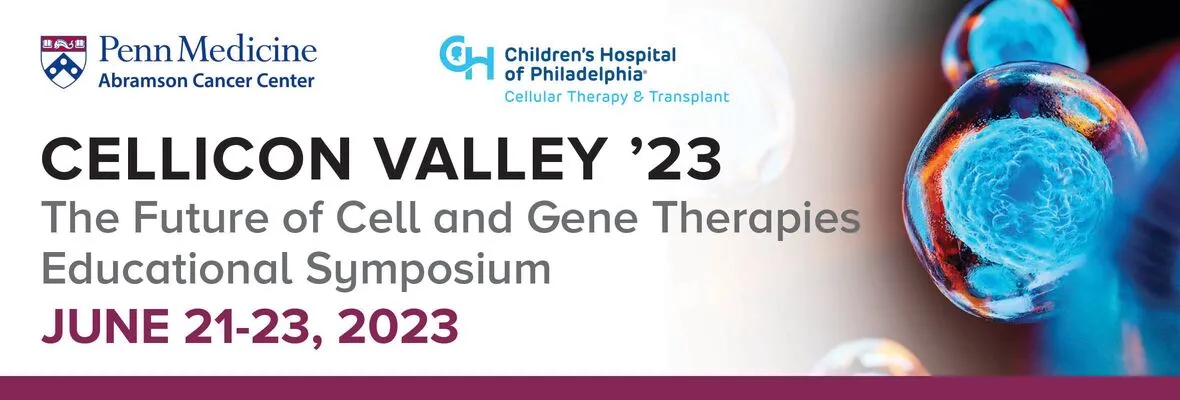Overview
Plenary Sessions Video
*where presenter permission was granted
Concurrent Sessions Video
*where presenter permission was granted
View Conference Photos
Photographs by Ed Cunicelli
In Person at
Irvine Auditorium
3401 Spruce Street
Philadelphia, PA 19104
or
Virtually via AJI Media Livecast
Overview
As home to the first FDA-approved cell and gene therapies, Penn Medicine and Children’s Hospital of Philadelphia are international leaders who have helped propel Philadelphia into Cellicon Valley, with the University of Pennsylvania ranking 1st among global universities for CAR-T cell patents, according to Nature Biotechnology. CAR T represents a turning point in the history of human medicine, a genuine revolution in our approach to disease within the field of cellular therapy and transplant. The approvals of chimeric antigen receptor (CAR) T cells offers even patients with highly chemo-refractory hematologic malignancies additional treatment options. World experts in CAR T-cellular therapy, hematologic malignancies, and hematopoietic stem cell transplantation (HSCT) have been assembled to discuss the development and implementation of this therapy and weigh in on current applications, best practices, novel strategies and future developments for CAR T cells.
Activity format will provide significant opportunity for interaction with expert faculty and other attendees with the aim of implementing new standards of patient care and understanding new strategies to optimize and improve CAR T cell therapies. Participants will leave with up-to-date, practical information which will have immediate clinical application, and an understanding of critical research initiatives that are rapidly driving this field forward. Research participants will leave with the technical and scientific background on the current state, and where the latest scientific advances may take the field.
Who Should Attend
These activities are intended for both adult and pediatric hematologist-oncologists, medical oncologists, hematologists, hematopathologists, immunologists, immunobiologists, transfusion medicine, researchers, pharmacists, fellows, nurses, nurse practitioners, physician assistants, industry professionals and other healthcare professionals interested in the latest advances in cell and gene therapy. Additionally, patients and their caregivers, family members, advocates and members of the public who may benefit from understanding current innovative approaches to gene and cell therapy are also invited.
Learning Objectives
Upon completion of this symposium, participants should be able to:
- Identify current application of CAR T-cell therapy including: disease indication, accurate patient selection, manufacturing and treatment administration for adult and pediatric patients
- Describe the latest for CAR T-Cell Therapy for T Cell ALL, multiple myeloma and CLL
- List challenges and opportunities for equitable patient access
- Explain the risk of malignancies and curative therapies for hemoglobinopathies
- Identify the current status of globalization of cell and gene therapies
- Describe the latest targets and technologies for CARs
- Define toxicity and its management
- Identify mechanisms of resistance and how to overcome it
- List recent advances in cell therapy for solid tumors
- Describe chimeric antigen receptor T Cells for T Cell malignancies
- Identify the latest evidence based standards in nursing care resulting from the recent advances in cell therapy and transplant:
- Identify advances in re-treatment
- List the latest updates in fertility preservation
- Describe the challenges with navigating and coordination of BMT/cell gene therapies and CAR-T
- Explain how bispecific antibodies work
- List standards of care and practice related to cell therapy infusion day
- Repeat the rationale for nursing to remain current with new and upcoming therapies
For additional information please contact Beverly Thomas.


